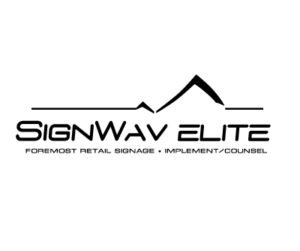There is a lot to consider when buying a condo, but one of the most important things is ensuring that the condo turnover process is as smooth as possible. Here is a complete guide to condo turnovers, from what to do during the turnover.
Let’s say a certain condo for sale in Paranaque City caught your attention and you bought a unit. Here are a few things you need to check for when it is about to be turned over to you.
- Check the status of the condo title and contract
- Make sure you are familiar with the condo rules and regulations
- Check the overall condition of the condo unit
- Make sure all electrical outlets and switches are in working order
- Test all faucets and toilets for proper function
- Watch out for hidden charges on your bill
1. Check the condo title and contract
The new buyer should always check the status of the title as this will show who owns the property. If there have been any disputes over ownership in the past, it could still pose problems for you.
The condo contract should be reviewed to see what is included in the sale, such as any furniture or appliances, and even if benefits on any of the amenities are included. This is so that both parties, especially you, are aware of the inclusions you paid for when buying the property.
2. Make sure you are familiar with the condo rules and regulations
As a buyer, make sure that they are familiar with the condo rules and bylaws. It’s important to know what is and isn’t allowed in the condo building in order to avoid any surprises down the road.
If you have further questions or clarifications, don’t hesitate to ask your broker and condo association to make sure you’re on the right track.
3. Check the overall condition of the condo unit
Inspection of the condo is an important step for both the buyer and seller during a condo turnover. This is so that any damages that may have occurred before the turnover can be documented and agreed upon by both parties.
Another thing to look for during a condo turnover is damage to the property. The previous owner may have caused damage that needs to be fixed before you move in. Make sure to document any damage that you find and submit a claim to the board if necessary.
4. Make sure all electrical outlets and switches are in working order
Before you finalize your purchase, it’s important to inspect the condo unit to make sure all electrical outlets and switches are in working order. Faulty wiring can be a fire hazard, so it’s important to catch any problems before you move in. If you do notice any issues, be sure to bring them up with the seller so they can be fixed before you take ownership of the property.
5. Test all faucets and toilets for proper function
One of the most important things to do when moving into a condo is to test all the faucets and toilets for proper function. Faucets that leak or don’t turn off properly can waste water and cause damage, while toilets that don’t flush properly can lead to clogs and other problems. By testing these fixtures ahead of time, you can catch any potential problems and get them fixed before they become bigger issues.
6. Watch out for “hidden” charges on your bill
When buying a condo, be aware of the hidden charges that other developers may try to add to your bill. A good rule of thumb is to budget an additional 10-15% on top of the purchase price for unforeseen costs, such as moving expenses, renovations, and condo fees.
Make sure you know what these fees are for and how much they will cost before signing any contracts. If possible, try to get the developer to include these fees in the overall price of the condo. This way, you won’t be surprised by any extra costs after you’ve already bought the condo.
In conclusion…
Condo turnover is an exciting time for buyers. However, it is important to be aware of the potential risks and to take the necessary precautions.
Before accepting a unit, owners should carefully check the condition of the unit and any repairs that may need to be made. They should also review the contract or fine print to make sure they understand all of the terms and conditions of the sale.
Finally, they should inspect the receipt to ensure that all charges have been correctly listed. By taking these steps, buyers can minimize the risk of any surprises after the turnover process has been completed.









 The 2024 virtual Men’s Round Table will be held Q4, 2024, date TBD.
The 2024 virtual Men’s Round Table will be held Q4, 2024, date TBD.













